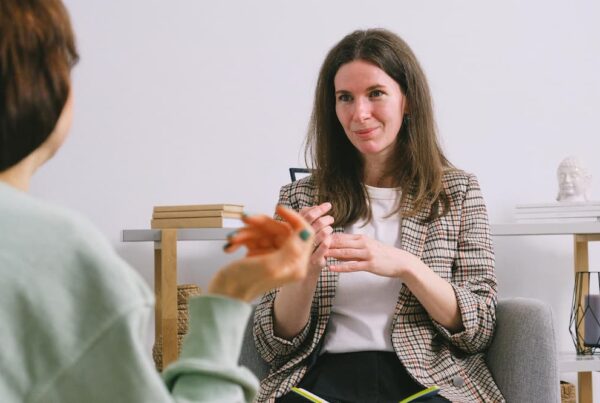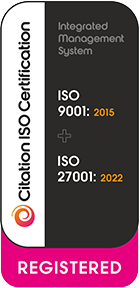Counselling and therapy are both known as effective ways to improve your mental health and well-being. If you are experiencing struggles, whether it be mental health or addiction, you may consider seeking help – but do you choose counselling or therapy? Which option is better for you and how can you heal from your struggles effectively?
In today’s blog post, we will look into the key differences between counselling and therapy to help support you in your decision to get help. You are not alone in this, and we are here to help – so let’s take a look…
Counselling
Counselling is designed to support you and guide you in the right direction when it comes to struggles with life’s challenges and changes. Counselling can help you develop effective coping strategies and offer practical solutions for any struggles you may be going through.
Let’s take a look at what counselling involves, and why someone may decide to seek counselling:
Purpose
The purpose of counselling is to help offer practical solutions and help people to come to terms with life’s challenges.
For example:
- Relationship problems with partners, family members and friends
- Career transitions, work-related stress and job loss
- Grief and loss
- Addiction and substance abuse
This is just a short list of examples that someone may choose to attend counselling.
Techniques
Your counsellor can help you to find coping strategies and techniques that work for you to help you towards your mental health goals and to overcome whatever is troubling you.
They will help you to set goals and reach them effectively. They can assist you in ways to manage stress, anger and other emotions, and provide you with ways to resolve conflicts that you may find yourself in, whether that be in relationships or work.
Timeframe
Counselling is often short-term and depends on your individual needs and mental health goals. Short-term counselling can range from a few sessions, 6-12 sessions, to several months of sessions. Sessions are usually scheduled weekly or fortnightly depending on your preferences.
Setting
Usually counselling will take place in schools, community centres or private practices. It offers a safe space for people to go to openly talk about their problems and find ways to resolve them and heal.
Outcome
Counselling is a short-term way for you to learn how to cope with life struggles – therefore, you typically complete a course of sessions to help you manage your emotions effectively. Some potential outcomes of counselling include:
- Improved relationships
- Reaching personal wellness goals
- A more positive outlook on life
- Improved mental well-being
Therapy
Therapy is also commonly known as psychotherapy or talk therapy. It aims to treat mental health conditions and can help you to develop strategies on how you can manage your symptoms.
Therapy will explore thoughts, feelings, behaviours and past trauma to understand underlying issues – so that you and your therapist can find ways to help you manage and cope with your problems. Let’s take a look into why you may consider therapy and what you can achieve:
Purpose
People may seek therapy if they have underlying mental health problems that are negatively impacting their mood and emotions in their everyday lives. They may also seek therapy if they have past trauma that they are struggling to cope with, or addictions that they can’t control.
The purpose of therapy is to:
- Improve overall mental health
- Resolve psychological issues, anxiety, depression, PTSD
- Develop coping strategies
- Eliminate unhealthy patterns
Techniques
Therapists will use a variety of techniques and approaches depending on the specific needs of their clients. They will help you to identify and challenge negative thought patterns, whilst also helping you to find activities you can engage in to improve your mood.
In some forms of therapy, they may expose you to situations and objects that you fear in order to reduce anxiety or fear. Therapists will provide you with empathy and understanding when you share your thoughts and feelings.
There are different types of therapy that you can attend depending on your personal needs and each of them will have different techniques, some of them include:
- Cognitive-Behavioral Therapy (CBT)
- Psychodynamic Therapy
- Humanistic Therapy
- Behavioural Therapy
- Mindfulness-Based Therapies (such as Mindfulness-Based Stress Reduction, Mindfulness-Based Cognitive Therapy)
- Acceptance and Commitment Therapy (ACT)
- Exposure therapy
- Addiction therapy
Timeframe
Therapy is a long-term option, and people usually attend therapy for months to years. This is because therapy addresses deep issues that may require a lot of time and work to overcome.
The timeframe can differ depending on the type of therapy. Some therapy options are once a week, whilst others can be intense and several times per week but for a shorter period of time.
Setting
Therapy usually takes place in hospitals, clinics or private practices like offices. Usually, the room therapy takes place in is relaxed and comfortable to help clients feel relaxed whilst talking about upsetting situations.
Outcome
Therapy can help people to come to terms with their trauma and heal. It can also help people to manage their mental health and overcome their addictions.
Underlying mental health problems can contribute to the cycle of addiction. Therapy can help people to address the problems causing the underlying mental health problems and trauma, to stop the cycle of addiction.
How to Choose What One Will Suit You Best
A one-size-fits-all approach when it comes does not work with therapy. Recovery should be tailored to meet your unique needs. Finding the best support system to suit you is a must, and you may have to try a few out until you find the perfect option for yourself.
Likewise, be sure to consider the cost of therapy and counselling. Counselling typically costs between £80 and £140 per session, whereas CBT can cost between £120 and £200 per session.
So, generally speaking, therapy is a more expensive option. However, it’s safe to say that therapy is worth the expense!
Whilst counselling is a great choice, it may not be a great choice if you are looking for something more long-term, whereas therapy would be. You should reach out to a mental health specialist who can help you find a suitable option that will work for you.
What Do They Have in Common?
Whilst therapy and counselling have a very different approach, and both work well for different things, they do have some similarities.
- Both aim to improve mental health
- Guidance from trained and experienced professionals
- Focuses on understanding clients’ unique experiences and tailoring techniques to support
- Both build a trusting relationship between the client and the therapist/counsellor
Therapeutic Addiction Support
In the UK, there are long waiting lists for therapy – with over 60% of patients waiting for more than 4 weeks between the initial assessment and the beginning of treatment. At Rehubs, we eliminate this barrier – if you’re struggling with addiction, you can access our treatment plan with no delays.
Our programmes work remotely, and you can heal from the comfort of your own home in a safe and peaceful environment, with family and friends around you for support.
You can access your support anytime, anywhere so don’t worry about having a busy lifestyle, that doesn’t have to get in the way of you becoming the best version of yourself!
We are here to guide you and support you on your journey and help you every step of the way. So, complete your free consultation form and a member of our team will reach out to you and get you on board!
{{ include_custom_fonts({“Poppins”:[“Black”,”Black Italic”,”Bold”,”Bold Italic”,”Extra Bold”,”Extra Bold Italic”,”Extra Light”,”Extra Light Italic”,”Light”,”Light Italic”,”Medium”,”Medium Italic”,”Regular”,”Regular Italic”,”Semi Bold”,”Semi Bold Italic”,”Thin Italic”]}) }}







